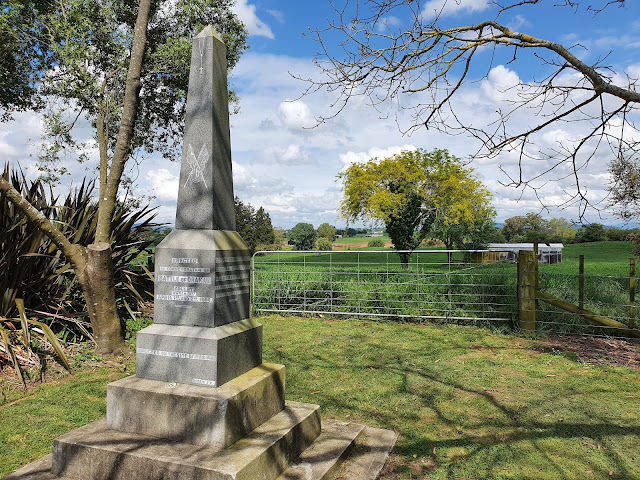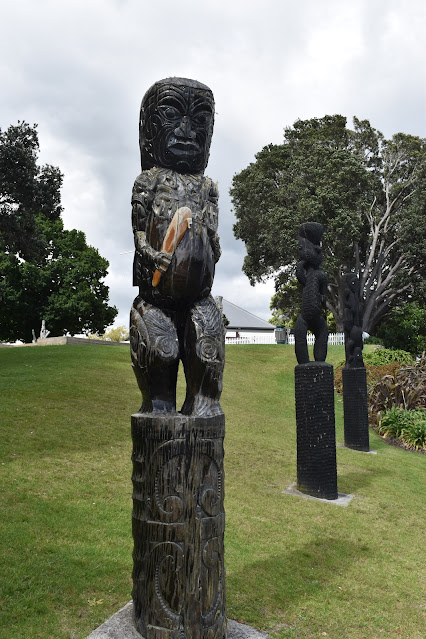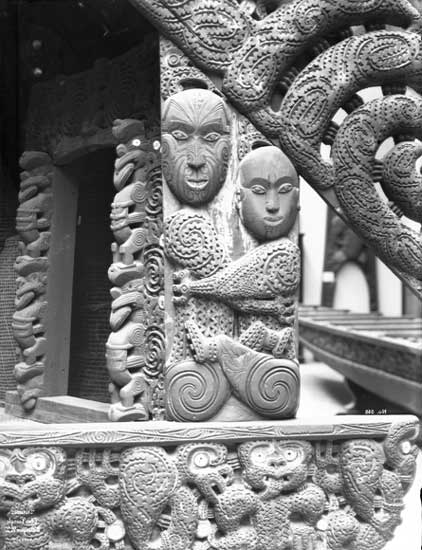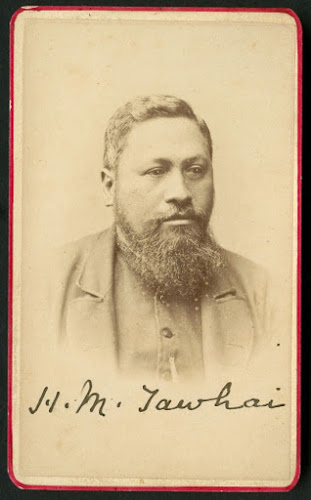Teaching Aotearoa New Zealand Histories
Aotearoa New Zealand has come a long way in the past few
years in its efforts to engage with its history in a more upfront and honest
manner. For those of us who have campaigned for such a change, this is not
before time.
This new-found willingness to move beyond a rose-tinted
approach to the nation’s past in which anything uncomfortable or considered
to reflect poorly on the Pākehā majority is shunned and ignored has taken
considerable effort and is still very much a work in progress.
Confronting the often bloody and brutal realities of
colonial dispossession of Māori has come as a shock for many non-Māori New
Zealanders brought up to believe that they lived in a country with the greatest
‘race relations’ in the world. A more robust and truthful understanding of that
history is to a large degree dependent on the education system. And while there
is good news on this front, it is easy to lose sight of the fact that the
campaign has been a long and at times difficult one.
 |
| A monument unveiled at Ōrākau in April 1914, marking the centenary of the final and bloodiest battle of the Waikato War of 1863-64 (photo: Vincent O'Malley) |
In September 2019 Prime Minister Jacinda Ardern announced
that New Zealand history would be taught in all schools from 2022. It felt
like a momentous decision given abundant evidence that most students left
school having had little
or no exposure to the history of their own country. Generations of New
Zealanders had grown up without
even a basic awareness of pivotal moments in the nation’s past, unable to
understand how events like the nineteenth-century New
Zealand Wars and subsequent land confiscations resonated today in myriad
ways, including in the often dire socio-economic statistics of Māori
communities around the country.
The Prime Minister’s announcement followed a
campaign begun five years earlier by a group of students from Ōtorohanga
College, a small rural secondary school in the King Country, about 20 minutes’
drive from where some of the bloodiest and most brutal battles of the 1863-64 Waikato War took
place. After visiting some of these sites on a 2014 school trip, the students
returned to class dismayed not to have learned any of this history before. They
vowed to take action, organising a petition that was eventually
signed by 13,000 people calling for a national day of commemoration for the
victims of the New Zealand Wars and for this history to be taught in all
schools.
Naturally, attention turned to that petition when it came to
understanding the background to the September 2019 decision, which followed a
long period of opposition
to compulsory teaching of New Zealand history on the part of politicians
and education officials. But as it turns out, there was a now little-known earlier
plea for New Zealand history to be taught, again led by a school student.
In 1992 Arlana Delamere was in her final year of secondary
school at Green Bay High School in Auckland. Students opting to take history as
part of the Seventh Form (now year 13) syllabus were offered two choices: Tudor
and Stuart England or nineteenth-century New Zealand. Except in many cases the
decision had already been made for them by their schools, which offered a
choice of English history or nothing. Green Bay High School was one such place.
Arlana’s father, and future Cabinet minister, Tuariki John
Delamere, was working in Wellington as a negotiations manager at the Treaty of
Waitangi Policy Unit when he received a phone call from his upset daughter.
‘She was in her last year of high school in Auckland. And
she wants to study New Zealand history and found out she couldn’t, she could
only study British history, and she was pretty incensed about it. She thought
this is bullshit.’
Tuariki, who had gone to school in Tauranga a stone’s throw from Pukehinahina (Gate Pā), another famous New Zealand Wars battle site but learned nothing about it during his own school years in the 1960s, readily agreed. He persuaded Arlana that they should lodge a claim with the Waitangi Tribunal, the body tasked with deciding on whether the 1840 Treaty of Waitangi has been breached, in her name.
 |
| Gate Pā (Pukehinahina), Tauranga, site of of an important New Zealand Wars battle on 29 April 1864 (photo: Vincent O'Malley) |
The history syllabus claim was filed in April 1992. It
states that ‘the history of Aotearoa is a taonga [treasure] under the terms of
the Treaty of Waitangi and that its teaching must be given priority over the
teaching of the history of any other country’. Arlana further added that ‘it is
my right as a person of Māori descent, as indeed I believe it is the right of
all students in Aotearoa, to have the option of being taught the history of
Aotearoa as the primary focus of the history syllabus rather than the history
of another country.’ The failure to teach this, it was noted, had led to
feelings of whakamā (shame or embarrassment) among Māori at the bottom of the
socio-economic rung, the victims of widespread hostility directed at them by
non-Māori who had no understanding of the history of Aotearoa.
Arlana’s statement of claim concludes with a plea for it to
be heard soon as she was in her final year of school. Nearly thirty years later
the Waitangi Tribunal has still to consider the claim, though she and her
father both say that hasn’t stopped the Crown from trying to say that it has
been settled as part of wider tribal claims.
For Arlana, looking back now the Treaty claim is a source of
pride but it was more challenging for the awkward teenager back then. ‘I found
it very difficult at the time because I was very shy and now that I’m older I
realise really what it meant. At that stage, I don’t think I had a real idea of
how advanced it was.’
She remembers a TV news crew turning up at school to
interview her, the situation saved by a call to relative and respected Māori
academic and activist Professor Ranginui Walker, who made a quick dash to the
scene to speak alongside her in support of the cause.
As for the Prime Minister’s 2019 announcement, Arlana says
‘I love it. I think to end racism, to help broken people today, you have got to
learn the history. You’ve got to have all the facts in front of you. And I
think it’s great more children who learn it in school will grow up with a more
cottoned-on kind of attitude’.
Tuariki agrees, describing the move as hugely transformative.
But he adds that if things turn out badly with the implementation of the new Aotearoa
New Zealand histories curriculum, Arlana’s Treaty claim is still there,
ahead of its time and now ‘hugely relevant’, even after being ignored and
forgotten for all those years.
A lot is riding on the success of this new curriculum and its delivery. The 1992 claim serves as yet another reminder that meaningful social change often does not happen overnight and that the early advocates for transformation can sometimes be overlooked when it does finally come about.
[This is the unedited version of an article published in the Guardian in November 2021].



The history that has never been taught and which this article conviently avoids is the slaughter, canablism, enslavement and massive scale theft of land rights that is the Musket wars. They are the inconvenient truth not the introduction of British law and goods which the native peoples sought ... hence their desire for the Treaty and for land sales.
ReplyDelete